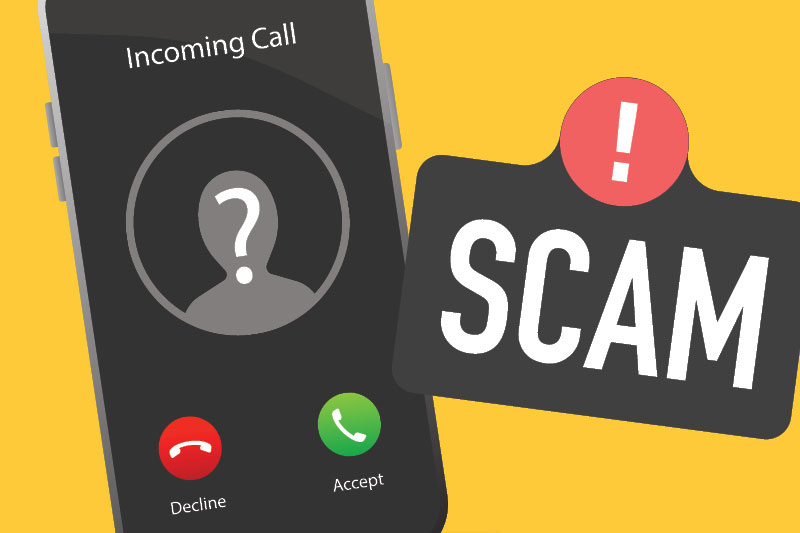Warning: 20379099, 953769951, 095 362 3342, 0839985724, 953625312, 021806000, 20810300, 27009088, 20795271, 022329861, 020179600, 0839930649, 0953646214, 02-037-9099, 20962636, 20162098 in the Thailand
Introduction
In today’s digital age, scams and fraudulent activities have become increasingly prevalent. One such scam that has been affecting people in Thailand is fraudulent calls from unknown numbers. These scammers often employ various tactics to trick unsuspecting individuals into divulging sensitive information or extorting money. In this article, we will delve into the details of this scam, explore the numbers used by the scammers, understand their modus operandi, and most importantly, learn how to protect ourselves from falling victim to such fraudulent schemes.
Understanding the Scam
- Definition of the Scam
The scam involving calls from specific numbers in Thailand revolves around fraudsters attempting to deceive individuals into believing they owe money, have legal issues, or have won a prize. The scammers adopt different personas, such as government officials, police officers, or representatives from financial institutions, to create a sense of authenticity and urgency.
- Prevalence in Thailand
This type of scam has been on the rise in Thailand, affecting both locals and expatriates. Scammers are constantly evolving their tactics, making it crucial for people to stay informed about the latest techniques used to exploit unsuspecting victims.
The Numbers Used in the Scam
Several phone numbers have been associated with this particular scam. It is essential to be cautious when receiving calls from these numbers:
- 20379099
This number is often used by scammers pretending to be from the immigration department, claiming issues with visas or work permits.
- 953769951
Scammers using this number often pose as bank representatives, trying to obtain sensitive financial information.
- 095-362-3342953625312
This lengthy number is used in a variety of scams, from lottery winnings to fake charity appeals.
- 20810300
Fraudsters employing this number may impersonate police officers, threatening victims with legal consequences unless immediate payment is made.
Modus Operandi of Scammers
- Impersonation of Authorities
Scammers frequently impersonate government officials, police officers, or other authoritative figures to create fear and compliance in their victims. By instilling a sense of urgency, they hope to pressure individuals into making hasty decisions.
- Fear and Intimidation Tactics
Using fear as a powerful tool, scammers may claim that failure to comply with their demands will result in severe consequences. Threats of arrest, fines, or legal actions are commonly employed.
- Urgency and Time Pressure
Scammers often create scenarios that demand immediate action from their victims. By imposing time pressure, they reduce the likelihood of individuals verifying the authenticity of the call.
Recognizing the Scam
- Identifying Suspicious Calls
Being able to recognize suspicious calls is crucial in protecting oneself from falling victim to the scam. Indicators include unsolicited calls, unknown numbers, and callers demanding sensitive information or immediate payment.
- Common Scam Indicators
Caller asking for personal information such as social security numbers or bank account details.
Callers pressuring for urgent payments through unconventional methods like gift cards or cryptocurrency.
Consequences of Falling Victim
- Financial Losses
Those who fall prey to the scam may suffer significant financial losses. Scammers may drain bank accounts, leaving victims in a dire financial situation.
- Compromised Personal Information
By divulging personal information, victims risk identity theft and exposure of sensitive data, which can have long-term repercussions.
Steps to Protect Yourself
- Register with “Do Not Call” Registry
Registering your phone number with the “Do Not Call” Registry can reduce the number of unsolicited calls you receive.
- Avoid Sharing Sensitive Information
Never share personal or financial information with unknown callers, especially if they pressure you to do so.
- Verify Callers’ Identity
If you receive a call from someone claiming to be from an official organization, ask for their identification details and verify their authenticity before proceeding.
Report and Prevent
- Reporting Scam Calls
If you encounter a scam call, report it to the relevant authorities or consumer protection agencies immediately.
- Raising Awareness in the Community
Spread awareness about this scam to friends, family, and colleagues to help protect others from falling victim.
Educational Campaigns
- Government Initiatives
Government agencies should conduct educational campaigns to inform the public about the latest scams and preventive measures.
- Private Sector Collaboration
Collaboration with telecom providers and financial institutions can enhance scam detection and prevention efforts.
Conclusion
Staying vigilant and informed is crucial in safeguarding oneself from falling victim to scam calls from specific numbers in Thailand. By recognizing the modus operandi of scammers and following preventive measures, individuals can protect their finances and personal information from potential harm.
FAQs
- What should I do if I receive a suspicious call from one of these numbers?
Hang up immediately without divulging any personal information and report the call to the relevant authorities.
- Can scammers use other tactics besides phone calls?
Yes, scammers may also use emails, text messages, or social media to reach their targets.
- Will registering with the “Do Not Call” Registry eliminate scam calls?
While it can reduce the number of unsolicited calls, it may not eliminate all scam attempts.
- How do scammers acquire personal information?
Scammers often gather personal information from various sources, such as social media, data breaches, or public records.
- Are there any support groups for scam victims?
Yes,
